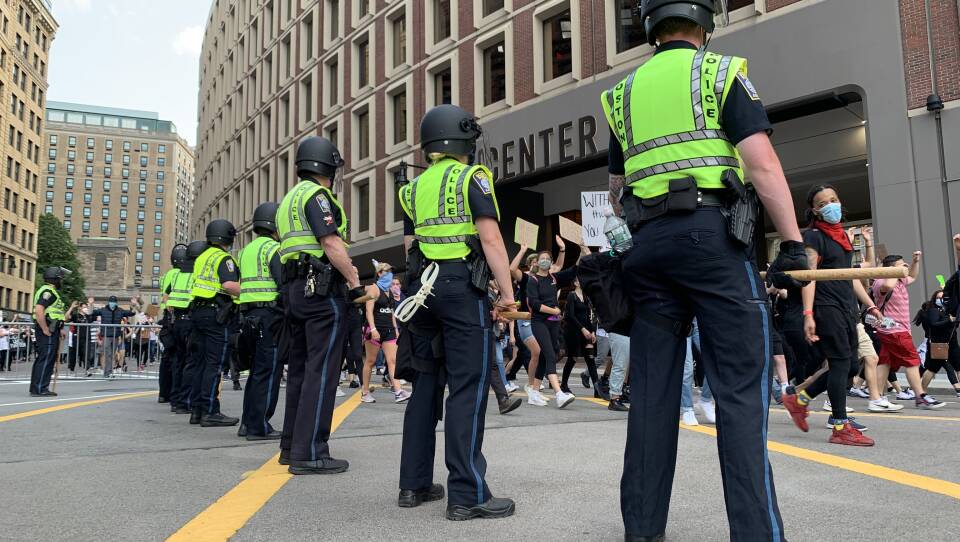Boston’s new police commissioner, Dennis White, says he’ll make reforming the Boston Police Department a top priority as he steps into his new role.
“It will be my duty and honor as Boston police commissioner to see that all the recommendations under my direction are implemented,” White said Monday, after he was sworn in by Boston Mayor Marty Walsh at Faneuil Hall.
“I know this will not be easy,” he added. “But I am confident that the Boston Police department will get the job done.”
White was one of two BPD representatives on the Boston Police Reform Task Force , which issued a sweeping set of recommendations last October, including the creation of a new civilian-review board to evaluate claims of police misconduct.
Before Walsh was tapped to become President Joe Biden’s labor secretary, he vowed to fully implement the recommendations of the task force, which was created after George Floyd’s killing by a Minneapolis police officer sparked outrage and protests locally and nationally.
White’s predecessor as police commissioner, William Gross, has spoken dismissively of civilian calls for police reform, recently telling the Boston Globe, “There’s nothing worse than Monday morning quarterbacks who have never walked in anyone’s shoes.”
In his swearing-in ceremony, White struck a very different note.
“To my fellow task-force members: mutual respect was always given to me during our debates on recommendations, and I truly thank you,” White said.
White is Boston’s forty-third police commissioner, and the second African American to lead the department. Gross was the first.
White also acknowledged that in Boston, police-community relations have been strained over the past year.
"As commissioner, the Boston Police Department will continue to prioritize community engagement to build trust and relationships with our citizens and community," he said. "We will get through this together. But we will have to make changes."
After swearing in White, Walsh spoke about the storm that’s expected to hit eastern Massachusetts hard beginning Monday afternoon, urging residents and commuters to avoid driving.
“Boston could get between 12 to 18 inches of snow, wind gusts could be as high as 45 to 50 miles per hour, [and] temperatures are going to be on the milder side with heavy and wet snow, which makes traveling very difficult,” he said.
“I encourage everyone to stay off the roads, if at all possible, from pretty much right now until tomorrow,” Walsh added.
A snow emergency goes into effect in Boston at noon Monday, which means parking is forbidden on main roads with snow-emergency restrictions.
The storm comes as Boston loosens some restrictions and moves back to Phase III, Step 1 of the state’s COVID reopening plan.
Walsh urged Bostonians to continue taking steps to limit the virus’s spread, noting that Monday also marks the one-year anniversary of Boston’s first confirmed COVID case.
“None of us had any idea what to expect a year ago,” he said. “The pandemic has turned our city and our world upside down. … Especially, it’s hard for communities who … already faced the deepest historic disparities in health and economic outcomes.
However, Walsh added, the city is slowly reopening as key COVID metrics improve; vaccination programs are expanding; and the Biden Administration is taking the pandemic seriously in a way the Trump Administration didn’t.
“We have begun the process of healing, and we’re going to get through this together,” he said.





